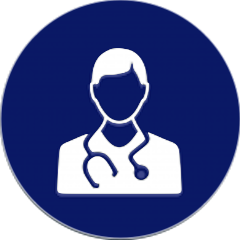HIGH-QUALITY AND COMPASSIONATE CARE FOR PATIENTS IN TEXAS
General :: Medical
1▸ Who will provide my anesthesia?
A team consisting of a board certified anesthesiologist and certified nurse anesthetist or anesthesia resident will care for you. This team approach provides maximum patient safety.
2▸ Are there different kinds of anesthesia?
There are four main categories of anesthesia; general, regional, monitored anesthesia care and local anesthesia. Please refer to the Anesthesia section for a description of these categories. Regardless of the category of anesthesia that you may receive, special anesthetic agents and techniques are used to provide a safe and speedy recovery. If there are reasonable choices available to you for your surgery, and often there are, you will discuss them with your anesthesiologist before the surgery.
3▸ May I request what type of anesthesia I will receive?
Yes, in certain situations. Some operations can be performed using a choice of different anesthetic types. Your anesthesiologist will discuss available options with you after reviewing your medical history. Your preference will be discussed so that the most appropriate anesthetic plan is made.
4▸ Will I receive any sedatives before surgery?
You and your anesthesiologist will develop an anesthetic care plan. This plan will include preoperative sedation and other medications if necessary.
5▸ Do I need a referral to make an appointment?
No. Most medical specialists will accept only referred patients. This is mainly to try to ensure that the specialist you are seeing is appropriate for you and your condition. Check with your insurance company to see if a referral is necessary.
“
Planning ahead can help ensure you have a successful procedure and heal faster with a smooth recovery.
1▸ Are my medical records kept private and confidential?
Your medical file is handled with the utmost respect for your privacy. Our staff is bound by strict confidentiality requirements as a condition of employment regarding your medical records. We will not release the contents of your medical file without your consent.
2▸ Will I be billed separately by the anesthesiologist?
Yes, you will receive a separate bill for your anesthesiologist’s professional services, as you will from your other physicians.
3▸ May my family accompany me?
Your family may stay with you, if you choose, until it is time to go to surgery. At that time, we ask that family members remain in the waiting room until the procedure is complete. When you awaken in the recovery room, you may once again choose to have your family join you. A parents or guardian will be required to remain at the Center for the entire time of any minor child’s procedure.
Medical Questions
1▸ What are the risks associated with surgery?
As with any surgery, risks include reactions to anesthesia, bleeding, infection, stiffness and nerve damage. Your doctor will discuss the risks associated with your specific procedure.
2▸ When can I return to daily activities?
This varies depending on the type of procedure undergone, and can range from a few days to a few months. Return to all activities, sports and exercise can take up to four to six months. Your doctor will advise you depending on your health condition.
3▸ Why must I refrain from eating and/or drinking prior to surgery?
You refrain from eating and/or drinking prior to surgery in order to prevent the risks of aspirating gastric contents during your surgery. This complication is very serious and you need to strictly abide by our recommendations. This has nothing to do with nausea and vomiting after your surgery as some think.
We have very clear policies as to specific times before surgery when you must refrain from eating and/or drinking. These are all based on safety standards. Please note that the standards have been revised recently. We believe that the fasting time should be as short as possible before your surgery. You will not improve your safety by not eating or drinking longer than necessary; in fact, at times you may complicate things a bit.
4▸ May I drive home?
Any patient receiving anesthesia should not drive until the next day. A patient receiving sedation for a procedure needs a ride home. The few patients who have procedures performed under local anesthesia alone could possibly drive home.
We request that all patients have a ride home and be received by a responsible adult when they arrive home. Patients will not be allowed to drive, walk or take public transportation home after sedation or anesthesia. Please make the appropriate arrangements.
Patient Forms
New patients will be asked to complete the New Patient Paperwork as well as some health history information, depending upon the service they will receive.
 2
2Surgery Preparation
Preparing mentally and physically for surgery is an important step toward a successful result. Understanding the process, and your role in it, will help you recover more quickly and have fewer problems.
 3
3Billing Procedure
Our charges cover your pre-operative evaluation, most supplies and medications, equipment, personnel and use of operating and recovery rooms.
